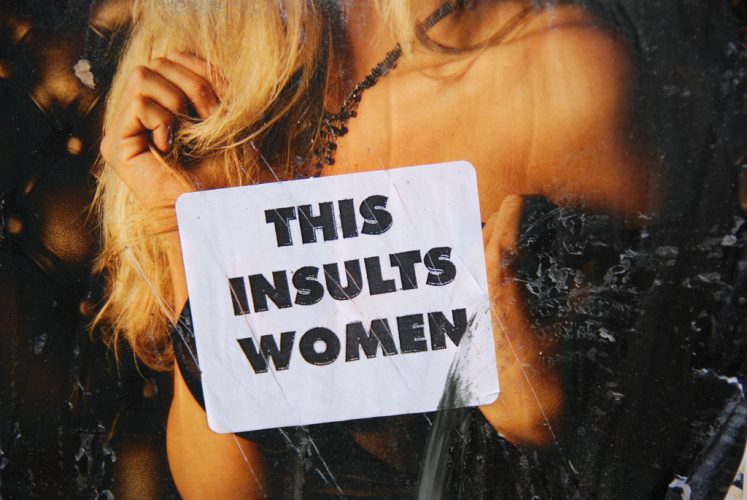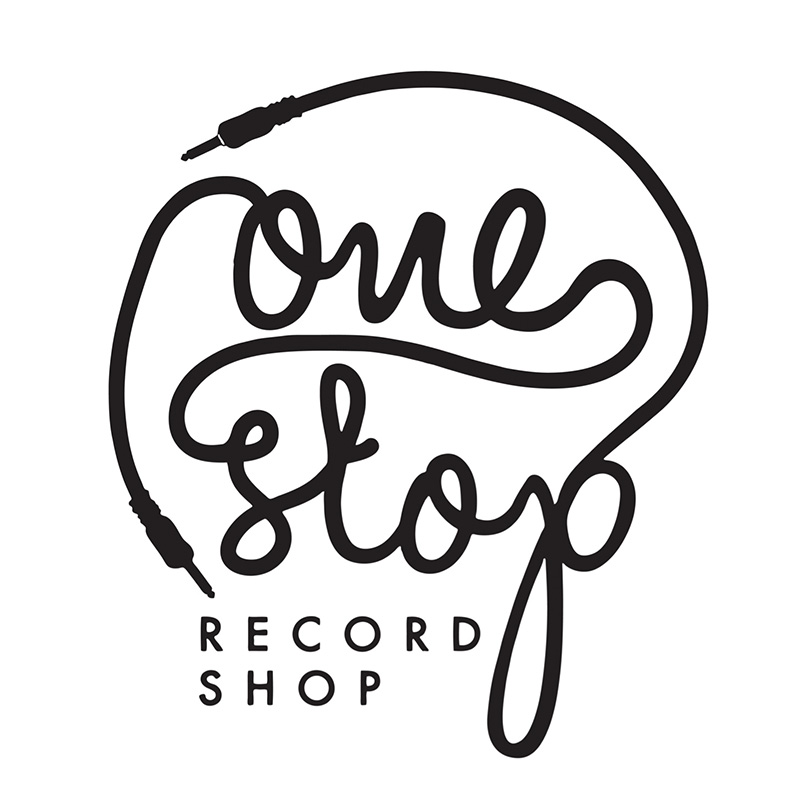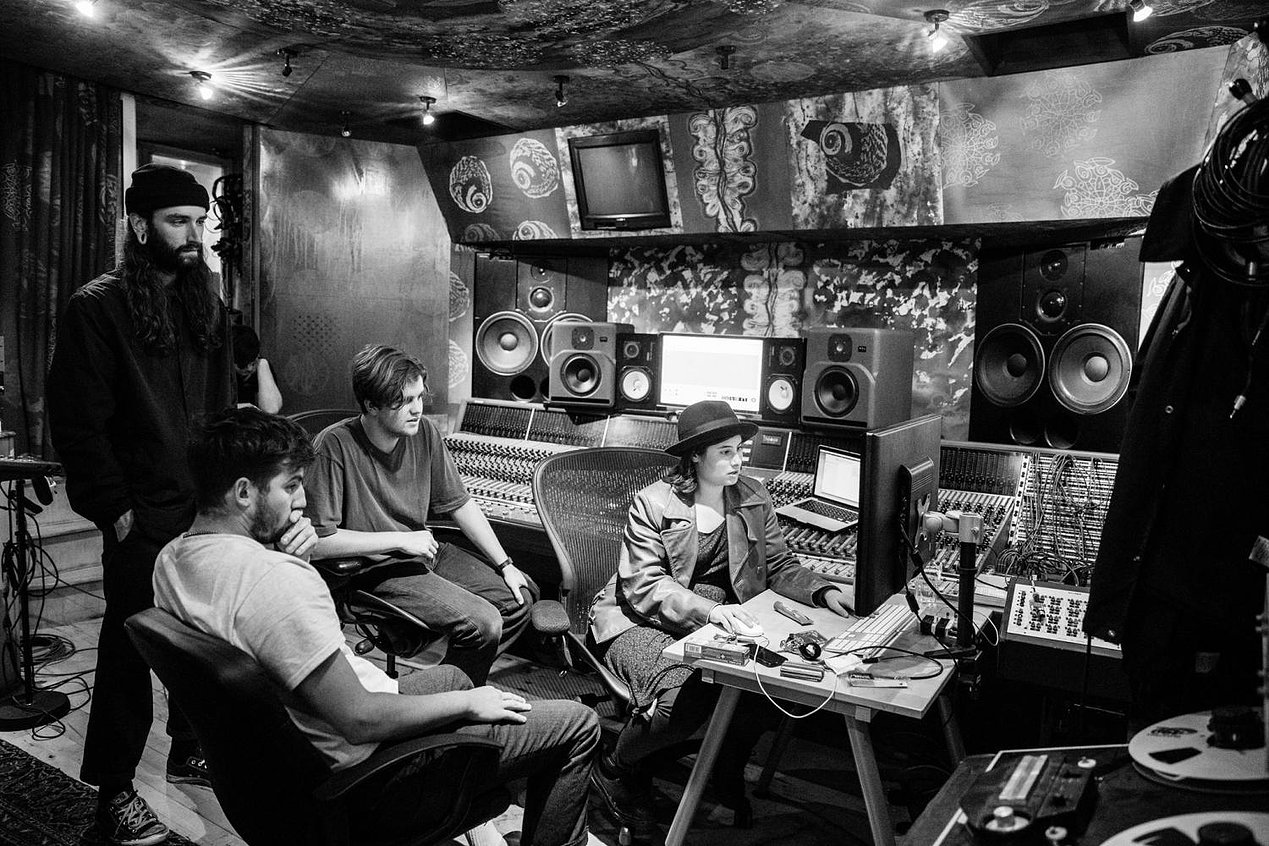
‘Hey dude, wed love you to check out our new killer track…’ began the email, lurking amongst the countless yet-to-be-opened press releases treading water in my inbox during the summer of 2012. Nothing too remarkable about that. Dodgy punctuation aside, it was just another email trying to get just another track on just another music blog. And then it hit me, ‘dude’? The last time I checked I didn’t have a penis. I mean, I know what one looks like, but it hasn’t featured as part of my anatomy at any point over the past twenty-six years.
To put this into context, One Stop Record Shop started life in 2011 as an anonymous music blog. Going under the pseudonym ‘Disk Jockey’, I produced content with the assistance of my music-enthused ally ‘DJ Horse Power’. Sure, in terms of content and visuals it probably contained characteristics traditionally viewed as ‘male’ – the black background (shocker) and the talk of rock music (god forbid) are but a couple of examples – however, how the leap was made from music blog to ‘it must have a male editor’ was beyond me.
I lost count of the emails that began, ‘Hey mate’ and ‘’Hi guys’ – terms of address that I had interpreted as just another greeting, alongside email sign offs ending ‘brilliant, thanks man,’ which popped up on more than one occasion. It may seem minor, but change needs to start from the bottom. It became increasingly clear that the consensus among bands and PRs was that a male editor was running the show – becoming something of an inside joke that helped us to create hidden content, dripping with sarcasm.
Fast forward to 2017 and the music industry seems to be heading in the right direction – all be it at the pace of an inebriated snail. Initiatives like the brilliant shesaid.so and the Alternative Power 100 Music List are beginning to gather pace. People are speaking out, but there’s still a long way to go. Sexism is still an undeniably prevalent force in music and gender numbers remain unbalanced. One glance at the latest PRS for music figures (the society that protects songwriters, composers and publishers, ensuring royalties are paid) show that out of their 118,000 strong membership (2015), 84% are male. It’s a figure that may surprise those unfamiliar with the inner workings of the music industry, but not those working within it. This is more than needing to up numbers for tokenism’s sake, this is about establishing deep rooted change. These statistics are reinforced by a recent study released by UK Music‘s diversity taskforce. Despite showing a promising rise in diversity, the study notes that women make up 60% of interns and 59% of entry-level business roles, with only 30% of senior executive positions being filled by women.
Now, it’s all well and good me harping on about these figures with no real authority on the subject (other than having a fucking brilliant taste in music), so it’s at this point I’d like to introduce our panel of industry insiders. From producers and managers, to marketing fiends and music video directors, this talented bunch of females span all manner of social demographics, age brackets and ethnicities. It’s about time we broadened this debate and gave you a clear view of the music industry, voiced by those who know it best.
Steph Marziano, Producer & Sound Engineer
Having worked with the likes of Radiohead, FKA Twigs and Catfish & The Bottlemen, it’s safe to say Steph Marziano knows a thing or two about the industry.
The music industry is a male dominated environment, one hundred percent. The MPG [Music Producers’ Guild] currently says about 6% of their members are women. It’s crazy. I think the tech side is even more male dominated – I think social life comes into it. It can be extremely antisocial.
There was this one engineer who was really cool, he’d be like ‘yeah, you’re really good, but because you’re a woman, people automatically presume you don’t know what you’re doing.’ At the time I was still quite new, so he was like ‘I’m going to be really hard on you and train you up.’ It toughened me up. Saying that, most guys in my line of music aren’t misogynists. Ninety percent of the time it’s great.
I think there are people higher up that still believe in artists having to be [sexy] and it’s kind of depressing. If it’s all old white men at the top then it’s going to reflect, no matter how many women are running the ship. I do think it’s getting better – Christine and The Queens for example. I’ve just finished producing Denai Moore‘s second album who’s signed to the same label. Her A&R, Jane Third, is the fucking coolest woman ever. When she started scouting at gigs there were no other women there. She’s hard as fuck and has totally proved herself time after time and been like, ‘hey, I know what I’m doing.”
Laura Evers Johns, Writer & Director
From music videos to commercial content, Laura Evers Johns has worked in advertising for over a decade and seen the bigger picture.
I think if there were enough women [at the top], the rest of the industry would reflect this. That kind of influence trickles down. And the culture would be different. There’s definitely a reoccurring theme of having to work harder/smarter to be heard. But what really infuriates me are moments when I’m patronized or underestimated, or experiencing obstructive behaviour. There is no one solution to any of it, but I do try to disrupt and diffuse these moments in a surprising or positive way.
Head over to Instagram and you’ll see a brilliant array of female directors who are making their mark with extraordinary visuals and ideas. But glance at the websites of most production houses and video content agencies, and in terms of who’s being repped, the world of music videos (and commercials) is still very male-dominated. And I fear this means that a lot of great directors aren’t getting noticed, let alone getting the job. At worst, this kind of disparity makes the industry a total clusterfuck.
What sets artists like FKA Twigs, Alison Goldfrapp, M.I.A, and Laura Marling apart, is their possession of a very singular vision – and their ability to find the right collaborators to help them realise this. As a result, they’re not only creating fantastic work, but they’re in control of their identity, which can shift and grow as they do. It’s brave, inspiring – and it’s the kind of art I want to be part of.

Claire Southwick, Artist & Producer Manager
Founder of Primitive Management, Claire Southwick has spent the past two decades working across the music industry, most recently managing the likes of Spring King and Hannah Lou Clarke.
I had a previous male boss who basically wouldn’t allow me to flourish and wanted me to remain an assistant, when the real reason I took that job was because the brief stated I would assist but I’d also grow to become my own manager. Any ideas I came up with were overlooked and we’d constantly have rows over who would make the coffee. The thing is, that frustration and anger I felt kicked me up the ass and spurred me to leave and start my own company.
I think there’s an obvious imbalance across the industry. It gets frustrating when you keep getting overlooked and you think, ‘hang on!’ I’ve experienced it before where guys take credit for what you’ve done – and the people that did it really surprised me. They say it and you just think, ‘but that’s a lie?!’ I’ve definitely been in situations over the years where you’re so shocked that you just say nothing, then after you beat yourself up. The thing you have to do is learn from those experiences and call them out next time.
It’s that frustration that made me go for it and set up my own business. I found it empowering and exciting. So often I felt like an aid to what someone else was doing rather than ever being allowed to flourish, then suddenly, for the first time, I felt like I had been unleashed.
There are more female managers coming through in recent years though, which can only be a good thing. It’s important to channel that frustration and turn something negative into something positive. To say, ‘fuck you! I’m doing this for myself.’

Karma Bertelsen, Marketing Manager
From sixty-thousand seater stadiums through to tiny intimate venues, Karma Berelsen heads up the team charged with marketing tours for the likes of Ed Sheeran, The 1975 and Natives.
Between the ages of 25 and 34, women make up 54.5% of the workforce, but that number drops to 41.4% in the 35 to 44 age range and to 32.7% between 45 and 64, showing that there is a lack of older women in the industry and women in senior positions. We still have a large problem in representing the LGBT community and BAME (Black, Asian, Minority, Ethnic).
I’m happy that I’ve found a company where its workforce is quite gender balanced and very supportive. I’ve experienced it in previous managerial roles where I’ve consistently been asked (instead of my male counterparts of which there were many to choose from) to deliver tea and coffee for external meetings – something that goes without saying was not part of my job.
I’ve even been told that the main reason I had a previous job was because I was a young, female and that it was easier for me to sell to the male buyers because of that reason, completely undermining my skill set or qualifications. The industry has started to realise there is a problem and together we’re working towards resolving it. A more diverse industry means a more creative and strong industry.



